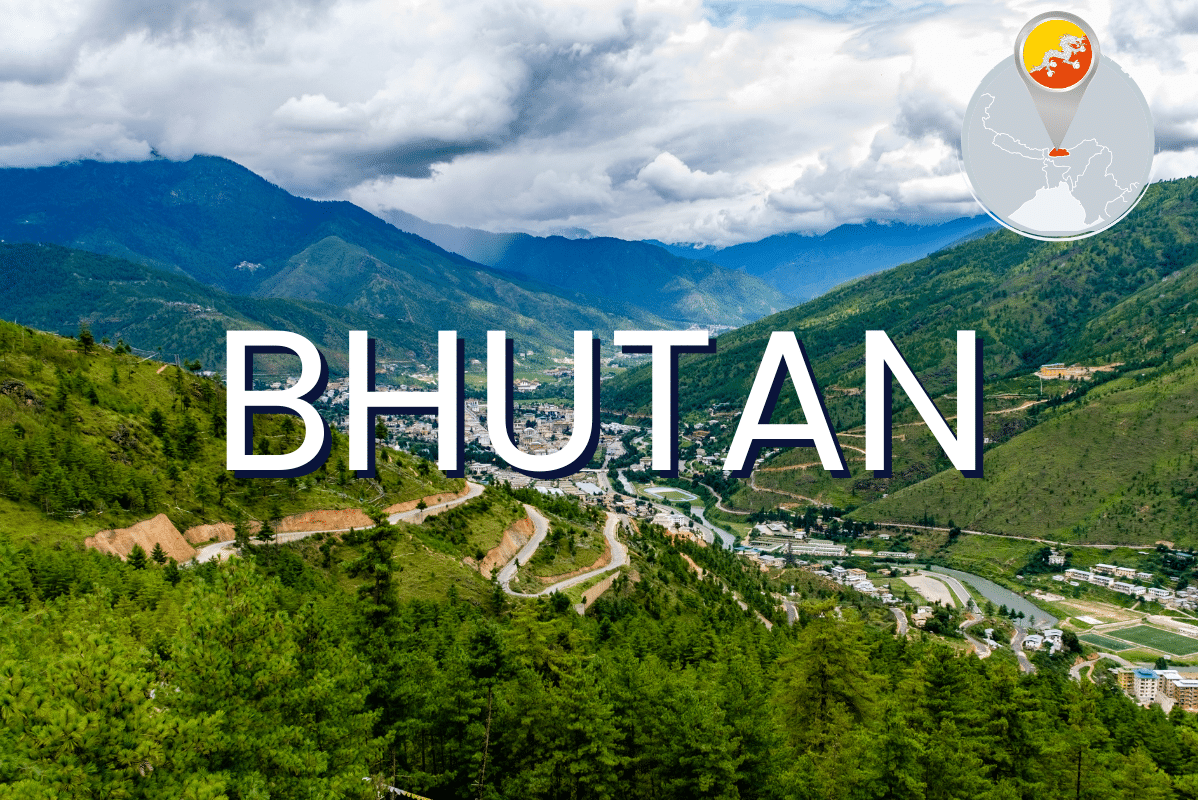
“Catalysts for Change: Voices from TAP-EDM Partnerships” Series
In Bhutan, short-term technical assistance through the TAP-EDM initiative supported the government’s efforts to strengthen mineral sector governance while balancing economic opportunities with the country’s strong environmental values. Through a Mining Policy Framework Assessment, Canadian experts worked alongside officials from the Department of Geology and Mines to build capacity, enhance coordination, and align national reforms with international best practices. In this series, project partners reflect on how targeted expertise supported their efforts.The TAP Program is funded by the Government of Canada through Global Affairs Canada and implemented by Alinea International.
Background
Bhutan’s economy has long been driven by hydropower, agriculture, tourism, and small cottage industries, with services, including tourism, playing the leading role. Yet to secure long-term prosperity, Bhutan has begun to explore the potential of its mineral resources, carefully balancing these opportunities with the country’s strong environmental values and legislation. Recognizing Canadian expertise in this field, the Royal Government of Bhutan requested support to strengthen mineral sector governance and align national reforms with international best practices.
In 2023, Tashi Phuntsho, an officer with the Department of Geology and Mines of Bhutan’s Ministry of Energy and Natural Resources, joined a transformative process: the Mining Policy Framework Assessment (MPFA) supported by the TAP-EDM project and funded by Global Affairs Canada. More than a technical review, the MPFA brought Canadian experts together with Bhutanese officials to build capacity, improve inter-institutional coordination, and lay the groundwork for a mining sector that is sustainable, transparent, and inclusive.
Tashi Phuntsho’s Story
When Tashi joined the MPFA process, the mining sector in Bhutan was facing several challenges: limited public consultation, outdated legislation, and gaps in closure and rehabilitation planning. From the start, he saw the MPFA as more than a technical exercise, it was an opportunity to drive meaningful, long-term reforms.
“Before, consultations were often short and not very productive. Now, I understand how to structure them so that people’s voices are really heard and their concerns addressed.”
Through the workshops and hands-on collaboration with Canadian experts Greg Radford, Clémence Naré, Carlos Ortega, and Rob Stevens, Tashi deepened his understanding of sustainable mining governance and “how to align our mining governance with international best practices”. He applied these learnings directly to the drafting of Bhutan’s new Mining Act, focusing on what he identified as three critical areas of reform:
“closure and rehabilitation, financial securities, and strengthening the legal framework”.
For Tashi, these priorities are not abstract. Closure and rehabilitation mean that“we make sure mining companies restore the site after operations end.”Financial securities ensure that“funds are available for this work before a project even starts.” Strengthening the legal framework, he adds, is essential “so that roles and responsibilities for monitoring, enforcement, and post-mining land use are clearly defined.”
These areas aim to guarantee that mining companies take full responsibility for site restoration, that financial guarantees are in place before operations begin, and that Bhutan’s legal framework supports effective monitoring and enforcement. à
These priorities, rooted in global best practices, became the cornerstone of Bhutan’s reform effort. They aim to guarantee that mining companies take full responsibility for site restoration, that financial guarantees are in place before operations begin, and that Bhutan’s legal framework supports effective monitoring and enforcement.
For Tashi, they also became deeply personal. Over the course of the initiative, Tashi’s role expanded from technical contributor to leader. He coordinated consultations with industry, civil society, and local communities, helping to build trust and prove that policy reform could be inclusive and constructive.
“I feel more confident now in leading these discussions and in pushing for the Mining Act,” he reflected. “Even after this project, I will keep working to see it approved and implemented.”
Conclusion
The MPFA was a turning point for Tashi: an opportunity to grow as a professional, strengthen his leadership, and contribute meaningfully to one of Bhutan’s most important policy reforms. Today, he continues to champion the adoption of the new Mining Act, ensuring it reflects both international best practices and Bhutan’s own development priorities.
Thanks to the technical expertise and the leadership skills he gained through the TAP-EDM project, Tashi is better equipped to guide inclusive policymaking, coordinate across institutions, and promote responsible mining in Bhutan. His story demonstrates how targeted technical assistance, combined with committed local leadership, can drive sustainable change at both the individual and institutional levels.
